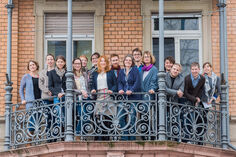Recovery processes during and after psychotherapeutic treatment: modeling and prediction
Contact: PD Dr. Stephanie Bauer (stephanie.bauer(at)med.uni-heidelberg.de)
Project management: Robert Percevic
This DFG-funded research project focuses on the dynamic structure of disease progression and recovery processes in psychotherapeutically treated patients. The project is based on longitudinal data of 1739 patients, which were collected during and after their psychotherapeutic treatment (1019 inpatients and 720 outpatients). The project promises new insights into how psychotherapy influences the recovery process and addresses currently discussed topics in health services research: the prognostic significance of the early course of treatment for the further course of the disease, the adaptive prognosis of the course of disease and treatment, and the dose-response relationship. It improves knowledge of process and outcome, thus strengthening the empirical basis for effective treatment-related outcome monitoring, and ultimately aims to optimize therapeutic care. Methodologically, the project is based on the application of stochastic processes for the description and prediction of disease and recovery processes and the use of computer-based simulation methods for the derivation of treatment-relevant conclusions. It thus contributes to the use of mathematical models and computer-based simulation in psychotherapy research.
Further information
Further Information
- Exploration of recovery courses after psychotherapeutic treatment (lecture January 2007), details
- More efficient psychotherapeutic care: Simulation studies based on symptom course models (lecture April 2007), details
- Symptom courses during and after psychotherapy: models and simulations (lecture Juni 2007), details



